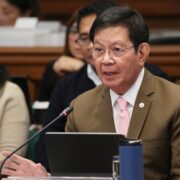Sustaining energy during a political upheaval

As an opinion writer, the rapidly unfolding political developments are both a boon and a bane. We are not lacking in material, nor do we have difficulty in identifying pressing topics that readers would like to discuss. At the same time, we also end up writing about corruption day in and day out, risking either public desensitization or induced hopelessness and despair.
How do we sustain our energy during a political upheaval? How do we avoid exhausting ourselves on behalf of a political cause?
For a political movement to be successful, there are two aspects of energy we must consider. The first is energy generation: how to generate the energy needed to spark a movement. The second is energy management: how to sustain energy all the way through to achieve the intended outcome.
The flood control corruption scandal is an interesting study in political energy. How is it that this particular corruption has sparked significant ire from the public, enough to compel the administration to finally act? For this, we need to go back to the last two State of the Nation Addresses (Sonas). In his 2024 address, the President touted flood control projects as a priority of his government, flexing the billions of pesos allotted to them. The seasonal rains, however, proved to mock him and demonstrated how these flood control projects were spectacular failures. Not only did these projects fail to mitigate floods, but they also exacerbated the situation, which caused more disruption and destruction. Being stranded, homes and properties destroyed, and lives lost proved to be the visceral experiences needed to displace complacency and ignite rage. No longer were there “flood-prone” areas that were accustomed to the monsoons. Now, everywhere is “flood-prone.” No longer was the devastation of floods experienced by only the unfortunate few; it has become the universal Filipino experience.
A critical mass of people experiencing intense emotion—in this case, anger—generates energy for a political movement that becomes impossible to ignore. The President clearly sensed this and smartly sided with the people in their anger (whether sincerely or not) when he condemned the corruption that tainted the flood control projects in this year’s Sona. Usually, bluster is enough. People feel placated, and the momentum dies down to the advantage of corrupt officials, who can return to their usual operations. Unfortunately for them, the almost weekly rains and floods that now plague us have prevented the issue from dying down, forcing politicians to follow through on their rhetoric and form various investigations and file charges. At this stage in a political momentum, they focus on the small fish—contractors, bagmen, district engineers—hoping that this catch is enough to give the public a sense of justice, sparing their colleagues and relatives in elected office from consequences. This is a game of chicken—who will remain standing, public rage or public indifference?
Emotions serve the function of provoking an urge. When we get angry, we have the urge to fight. Strong emotions are thus necessary to spark a movement. We are in this phase now. People are angry. Every time they travel between work and home, they curse the corrupt officials who make their daily lives a living hell. Every time we see the obscenely wealthy lifestyles of government officials and contractors, we are slapped with the reality that we are being robbed in broad daylight. Every time we see excessive and frivolous travel, every time we see them use helicopters to avoid traffic, every time we see their kids get sent off to schools abroad, every time they go abroad for medical treatment, we see just how shatteringly different our worlds are.
However, there is one thing I know for sure: emotions do not last. Nothing of significant intensity remains the same for long. This is a fact about emotions that begets long discussions in therapy, as people who experience emotional pain tend to believe that their pain will last forever. While in its throes, it’s hard to imagine that what we feel—and the urges that come with it—are temporary. And yet, they do. Time heals all wounds. What goes up must come down. It is the principle of homeostasis.
Trapos know this and are masters at waiting it out. They’re experts at delay and divert tactics to keep the heat off themselves long enough until people stop caring. They form investigations with no teeth to keep people entertained. They inundate the news cycle with too many soundbites to drown out the true stories.
Emotions are necessary but not enough. To maintain momentum, we need to direct our energy toward a resolution. This energy needs to be institutionalized in concrete action before it fully dissipates. This could be in the form of an organized protest or pursuing all legal remedies. Civil society watchdogs could be put in place to prevent corruption from running rampant again. Energy needs to be contained to be used effectively.


















